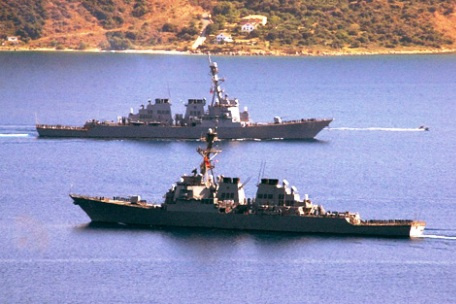Iran Should Not Embrace War

As Iran's naval maneuver in the Persian Gulf has captivated the media’s attention since last week, news agencies report of an unprecedented 30 billion dollar arms trade between the US and the Kingdom of Saudi Arabia. The United Arab Emirates also received its share of Washington’s advanced weapons in a 3 billion dollar deal. Has another arms’ race in the region been triggered? Iranian Diplomacy discusses the topic in an interview with Hassan Beheshtipour, professor at Shahid Beheshti University and an international affairs analyst:
IRD: How can you explain the media storm over Iran's military drill in the Persian Gulf?
HB: I think everyone knows of Washington’s Iran-phobia strategy intently promoted across the Middle East in order to sell its military products to Riyadh, Abu Dhabi and Baghdad. Iran is the bogeyman which helps Boeing and Lockheed Martin sell their products. Armament companies can create jobs for thousands of Americans through this policy. But these arms deals will add nothing to the economic dynamics of the Middle East. The purchased weapons are merely stored in depots and hardly ever used. And the substantial oil revenues of Arab countries are squandered by the Iran- demonization plan.
IRD: How effective is the media hype over Iran's Persian Gulf Maneuver in preparing global public opinion for strong action against Iran?
HB: I think the situation is more critical than before. The West used to implement the idea of warfare to intimidate Iranian officials and also the nation. They have now shifted to a divisive approach, and try to widen the rift between political factions inside Iran by tightening the cordon around our country. The West has come to the conclusion that undermining unity inside Iran is more effective than launching a risky military strike. Military confrontation will inflict their already flagging economies with a serious crisis. I don’t think they are floating the idea of attacking Iran. They think that economic sanctions and stifling Iran's oil exports would lead to a better result.
IRD: How do you think Iran can handle the media wave? Speaking of blocking the Strait of Hormuz, or test-firing intermediate-range missiles-- could these actions help Iran win over the West in the media warfare?

